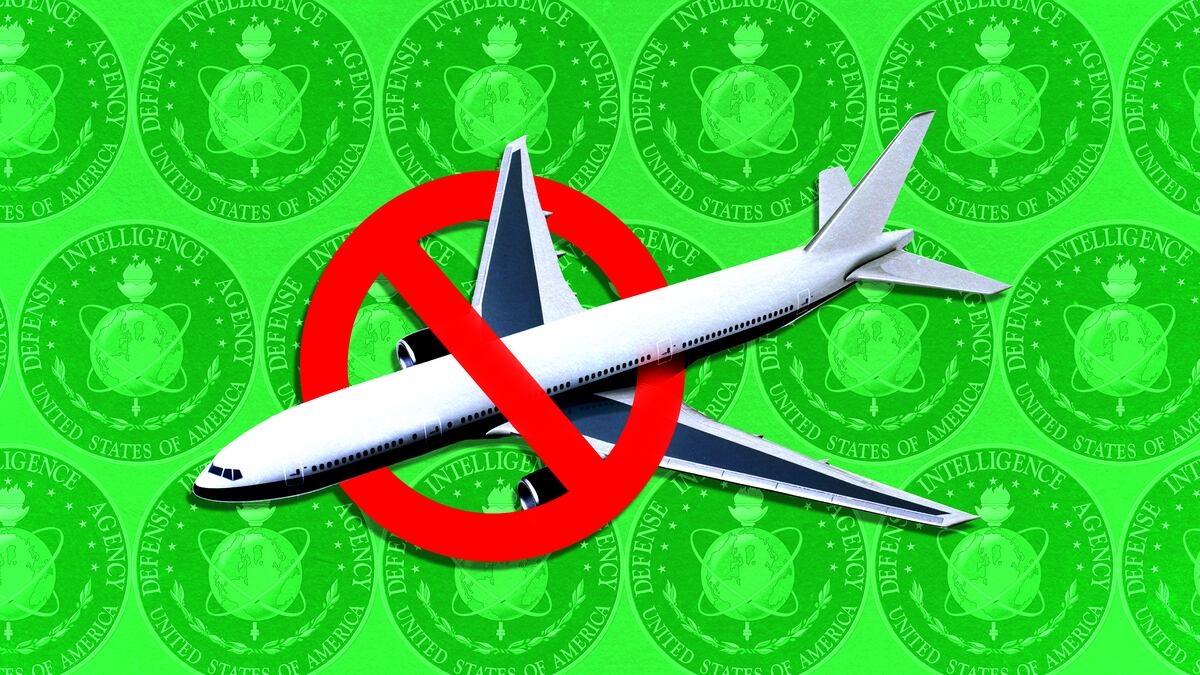Vice President Mike Pence said Monday evening that there has been no ban on domestic travel despite the growing number of 2019 novel coronavirus deaths in the United States. But one government agency is effectively directing its employees not to travel, domestically or internationally, at least for the next several weeks.
The U.S. Defense Intelligence Agency (DIA) has banned much of the temporary duty assignment (TDY) travel as coronavirus cases continue to surge across the globe, according to two individuals familiar with the office’s protocols. Temporary duty assignment travel includes employees of the agency who need to travel from their permanent posts for things like meetings, conferences, training, or to backfill positions.
The agency is also asking employees returning from outbreak countries to remain at home under a self-quarantine system. According to the sources who spoke with The Daily Beast, the agency has posted flyers across its headquarters building, reminding people of the directives.
“DIA employees who have traveled from CDC-defined Level 2-3 countries within the past 14 days are required to remain at home on self-isolation for 14 days before being medically cleared to return to DIA facilities,” said a spokesperson for DIA, who provided a comment to The Daily Beast after publication.
The DIA is the first known government agency to ban travel domestically in the face of the global outbreak, raising questions about whether other federal offices will issue the same guidance.
“DIA is a global organization and has a responsibility to protect the health and safety of its globally-deployed workforce,” the spokesperson said. “During this coronavirus outbreak, DIA is following DoD Force Health Protection Guidance, which itself is closely coordinated with the CDC and other interagency partners. As a prudent step, the agency has issued guidance regarding official travel that requires certain levels of approval depending on mission criticality and the travel destination.”
At a press conference at the White House Monday evening, where members of President Trump’s coronavirus task force addressed the rising death toll in the U.S., a reporter from The Washington Post asked the vice president whether he would feel comfortable traveling with his family to somewhere like Disney World during Spring Break.
“I travel across the country all the time. My kids live across the country,” Pence said. “This is a time to use common sense and wash your hands.”
Pence told reporters they should expect some sort of briefing each day in the future with updates from healthcare professionals on the most up to date coronavirus statistics.
The conference Monday came in the midst of ongoing criticism from Capitol Hill and state and local officials that the administration was not doing enough to inform the public about the virus. Last week, President Donald Trump appointed Pence to take the lead on communication. Since then, federal agencies involved in the task force have pushed off media questions, telling reporters that all requests should be filtered through the vice president’s office.
According to two senior U.S. officials, despite all federal agencies involved in the coronavirus response streamlining messaging through one government office, each is issuing its own internal guidance on the virus, including restricting travel and directing people to self-quarantine. Those individual directives vary from agency to agency, those officials said, depending on the circumstances.
Not everyone involved in the task force is in the loop on every office’s protocols. Last week, the Navy announced that it had ordered ships that visited countries in the Pacific region to self-quarantine and remain at sea for two weeks in order to screen sailors for the coronavirus. Senior members of the task force told The Daily Beast Monday they were not aware of the Navy’s announcement before the initial news reports.







